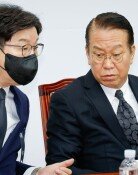Russian veto ends UN panel that monitors N. Korea nuclear sanctions
Russian veto ends UN panel that monitors N. Korea nuclear sanctions
Posted March. 30, 2024 07:36,
Updated March. 30, 2024 07:36
The extension of the mission of the 'Expert Panel' under the North Korea Sanctions Committee, which monitors the implementation of sanctions against North Korea by the UN Security Council (UNSC), was rejected due to the veto of Russia, a permanent member of the UNSC, and the abstention of China, another permanent member, after 15 years since its establishment in 2009. Without intervention, the current panel's operations will cease on April 30.
Concerns have arisen regarding the effectiveness of the international community's sanctions against North Korea, amidst reports of increased military cooperation between North Korea and Russia, coupled with China's perceived tolerance of North Korea's nuclear activities. The Financial Times (FT) has voiced apprehension, stating that "The sanctions regime […] is now on the brink of collapse." Notably, mounting criticism has been directed at Russia, a permanent Security Council member, for its alleged abuse of veto power.
On Thursday (local time), the UNSC convened a meeting to consider adopting a resolution to extend the mandate of the eight-member North Korea Sanctions Committee expert panel. However, Russia vetoed the resolution, with China abstaining. It's worth noting that the adoption of a resolution necessitates unanimous consent from all five permanent members: the U.S., the U.K., France, China, and Russia.
Diplomatic circles perceive Russia's veto as a retaliatory measure against the expert panel, which has been meticulously monitoring the illicit arms trade between North Korea and Russia. This suggests that the panel's elimination was orchestrated to prevent any hindrance to potential future arms transactions with North Korea.
The actions of Russia and China drew strong condemnation from the international community. Ambassador Hwang Jun-guk to the UN likened the situation to "CCTV being damaged while committing a crime." Meanwhile, U.S. State Department spokesman Matthew Miller criticized Russia's veto as a result of a "corrupt bargain" with North Korea. He expressed deep disappointment with both Russia and China. "We will further respond by closely coordinating with like-minded countries such as Korea and the U.S," Japanese Chief Cabinet Secretary Yoshimasa Hayashi echoed these sentiments.







